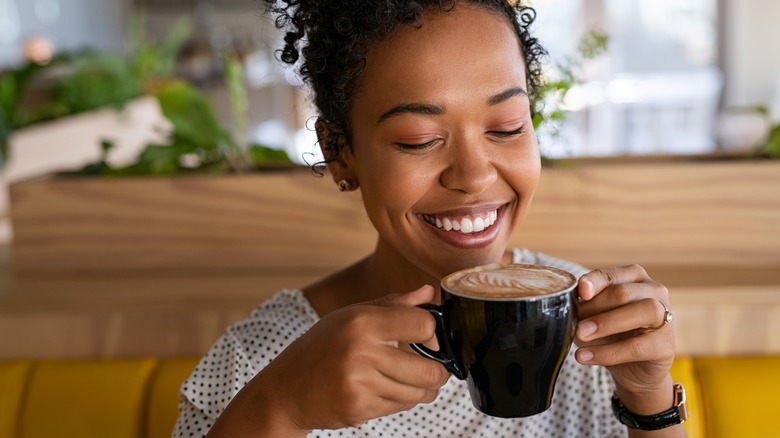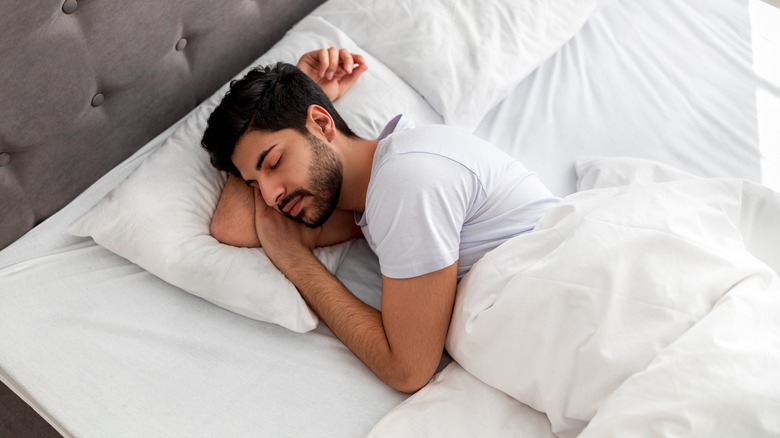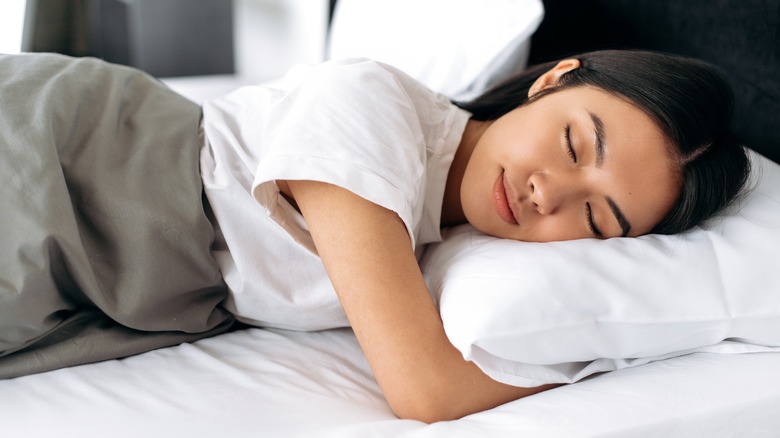Should You Be Drinking Coffee Before You Take A Nap?
Drinking a cup of coffee before taking a nap might sound silly, but there are some good reasons to do so. The caffeine in coffee that helps you feel energized takes about 20 minutes to start working (via Healthline). So, if you drink a cup of coffee and then immediately lie down for a nap, the caffeine will kick in around the time you should be waking up. According to the Sleep Foundation, 20 minutes is the ideal time for a short nap because anything longer will leave you feeling groggy. If you time your coffee and nap correctly, you can wake up feeling more refreshed and alert.
However, there are also risks associated with drinking coffee before a nap. If you don't time it correctly, you may start feeling energized too soon and won't be able to nap at all. Too much caffeine can also have negative health effects such as headaches, dizziness, and insomnia (via Medline Plus). Ultimately, it may be worth a shot, but be sure to time it correctly and limit the amount of caffeine you consume each day.
Are naps helpful?
Some people live for naps and other people never take them, but are they good actually helpful? It turns out that naps can offer some benefits, but there are also some potential drawbacks to consider. On the plus side, naps can improve mood, alertness, and cognitive function (via WebMD). Naps can also help memory consolidation and reduce stress levels. An important caveat of this, though, is that your naps need to be under 20 minutes. Anything longer can leave you feeling groggy and more tired than you did before you took the nap.
However, naps can also interfere with nighttime sleep, which can have its own consequences. If you have trouble sleeping at night, you may want to avoid napping during the day (via Mayo Clinic). In addition, long or frequent naps may be a sign of an underlying sleep disorder. If you do decide to take a nap, the best time to do so is usually in the early afternoon. This will help you avoid affecting your nighttime sleep and should give you enough time to wake up feeling refreshed. Naps can have some benefits, but it's important to be aware of the potential drawbacks as well.
The importance of sleep
It is hard to overestimate the importance of getting a good night's sleep every night. Sleep is essential for our physical and mental health, and can have a profound impact on our mood, energy levels, and overall well-being (via The Sleep Foundation). There are a number of reasons why sleep is so important. Sleep helps to restore our bodies and minds after a long day of work or activity. It gives our muscles a chance to repair themselves, and it allows our brains to rest and recharge.
Sleep also plays a vital role in our ability to learn and remember information. during sleep, our brains consolidate memories from the day before, making them easier to recall later on. Finally, sleep is crucial for maintaining a healthy immune system. When we don't get enough sleep, we are more susceptible to getting sick. If you're looking to improve your physical and mental health, make sure you are getting enough sleep each and every night. Your body and mind will thank you for it.



